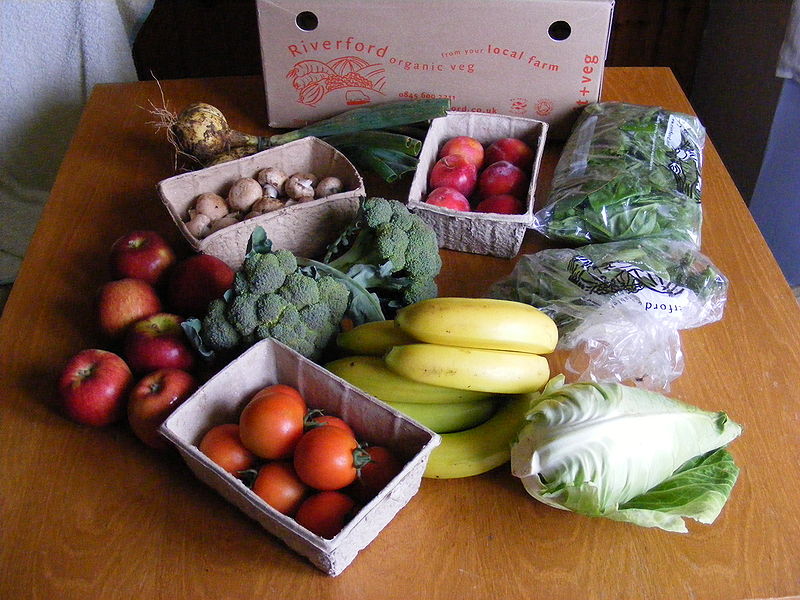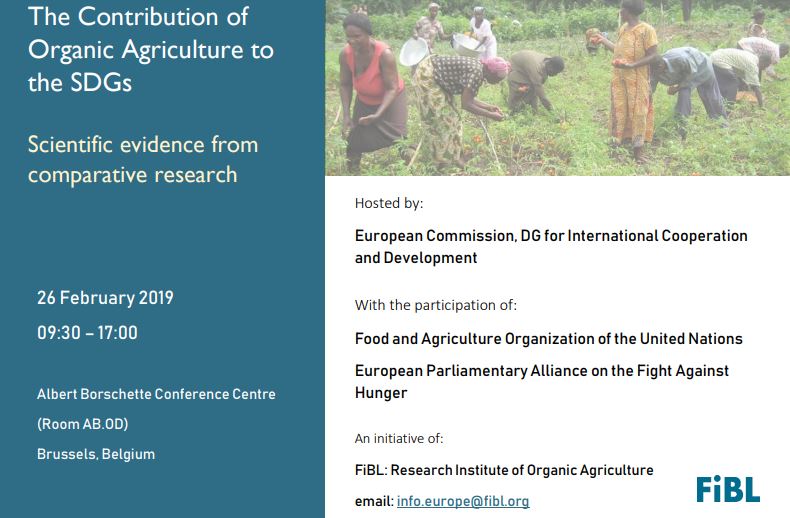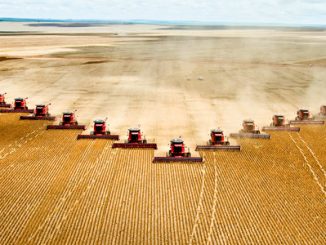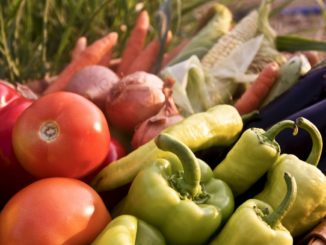
By Nicola Love, Miguel de Porras, Helga Willer and Beate Huber.
Organic agriculture is a productive form of agriculture delivering significantly higher public goods like soil fertility, biodiversity and better quality of surface and drinking water than conventional agriculture. Consequently, organic farming and other agro-ecological approaches have great potential to contribute to the achievement of sustainability goals at both domestic and international levels.
While in the past the solution was seen in a one-sided agricultural economy focused on increasing production, it has now been recognised that more sustainable strategies are needed. According to the United Nations’ Food and Agriculture Organisation (FAO), achieving the UN’s Sustainable Development Goals (SDGs) requires, for example, diversification in agriculture, improving soil health, protecting ecosystem functions and increasing the stress tolerance of agricultural systems.
National and international decision-makers are increasingly recognising the potential of organic farming and other agro-ecological approaches for food security, poverty reduction and the promotion of rural development. Organic agriculture tackles key societal challenges such as rural exodus and migration, climate change, resource scarcity, biodiversity loss and water pollution. Optimal biological and agro-ecological cultivation and production methods for selected crops, agroforestry and animal husbandry systems in various climatic regions have been developed and make it possible to improve livelihoods, strengthen the local economy and make the food systems healthier and more sustainable.
However, to date research has concentrated on temperate climates, and results are not readily transferable to tropical or arid areas. It is predicted that by 2050, half of the world’s population will reside in the tropics, where many countries are already facing the challenge of poverty and hunger.
The Research Institute of Organic Agriculture (FiBL) is already leading the way in establishing a number of long-running field trials to evaluate the performance of organic agriculture in tropical and sub-tropical climate zones in terms of productivity, economic viability, environmental soundness and social inclusiveness.
The project “Farming Systems Comparison in the Tropics” (SysCom), aims to establish a scientific basis for discussions on the performance and potential of conventional and organic agricultural production systems in the tropics. It has been running since 2007. Long-term farming systems comparison field trials in three tropical countries – Bolivia, India and Kenya have been established in concert with participatory on-farm research focussing on a different cropping system in each country. SysCom has established itself as an important research programme in the field of sustainability science, particularly in tropical contexts and provides functional infrastructure necessary for carrying out research and development activities.
The projects “Productivity and Profitability of Organic and Conventional Farming Systems” and the Organic Food Systems Africa (ProEcoAfrica) have been running since 2013 in Ghana, Kenya and Uganda. They aim to assess the productivity, profitability and sustainability of selected organically-produced crops in comparison with those produced through conventional methods. In this way, the results will address knowledge and data gaps in Africa regarding the comparative performance of organic farming and its potential benefits, allowing policymakers to make informed and evidence-based decisions on agriculture and food security in sub-Saharan Africa.
The scientific evidence provided by these research projects can significantly contribute to the international discussion around how to better achieve the SDGs. Moreover, in the discussions around the SDG 2.4, the contribution of organic agriculture has to be considered as one of the most suitable agricultural systems in achieving this goal. The organic agricultural area has to be considered as a key contributor to the SDG indicator 2.4.1 “Percentage of Agricultural Area under productive and sustainable agriculture”. While there is still an open international discussion, of how exactly this can be measured, Eurostat, the Statistical Office of the European Union, has already defined that the organic area share is an important indicator when it comes to monitoring progress towards SDG 2. FiBL experts have been working for many years in the collection of this statistical information published in the annual report ”The World of Organic Agriculture,” This yearbook represents a significant contribution for better monitoring the progress towards this specific Sustainable Development Goal, as it presents the area under certified organic management and the organic area share of total farmland for a total of 181 countries.
FiBL will be hosting a workshop in Brussels on 26 February 2019 in order to present its research findings to policymakers, academics and practitioners as well as civil society. The workshop is hosted by the European Commission’s Directorate General for International Cooperation and Development, and it is supported by other leading research institutes, furthermore the United Nations Food and Agriculture Organisation (FAO), and the Parliamentary Alliance on the Fight Against Hunger. The workshop will also feature scientific and policy panel discussions to reflect upon the results in view of the role of organic agriculture in the European and international development policy frameworks. Livestream is here.






1 Trackback / Pingback
Comments are closed.